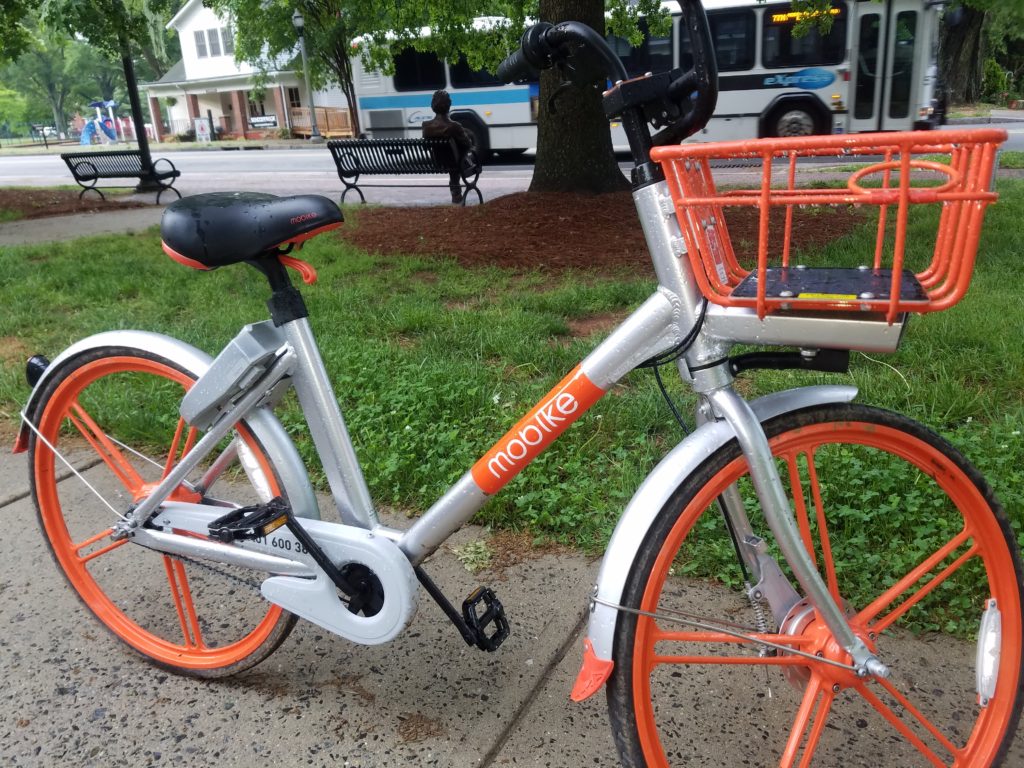
A Mobike at the library, with Mark Twain in the background, and a CATS bus
Some of those fun orange bicycles you’re starting to see around town are “smart bikes” drifting this way from Davidson College. Fifty orange and silver Mobike bikes arrived on the Davidson campus this year.
Davidson was the first institution of higher learning to partner with Mobike, the world’s first and largest smart bike-sharing company.
Equipped with GPS, they make large-scale bike sharing more more practical for the “last mile” of a trip from, for example, home to work, or from work to a restaurant.
Riders use smartphones to reserve, unlock and pay for their bikes.
Does this mean candy-colored bikes will become a transit option in Cornelius? One bike was parked outside the library on Catawba for days; you can usually find more at the CATS bus station on Jetton Extension/Sefton Park.
It’s possible, but so far at least the town is not involved. “We have not considered a bike program like this in the town,” said Assistant Town Manager Andrew Grant, who said he has spotted them around town.
The shared bike business capitalizes on achieving the “last mile” of a trip. Where mass transit ends, a shared bike comes in handy. Motorized scooters have popped up in Charlotte.
Users download the appropriate app and then use their smartphones to find a two-wheel ride. When they’re done, they lock up.
Davidson bikes are free to ride during the spring semester. College and Mobike officials will evaluate the program over the summer to determine how it should be implemented and how much they will charge next fall.
Most larger cities have some sort of shared bike program.
Lime just launched a scooter share service in Charlotte with green electric scooters.
Spin, MoBike and Ofo are part of a pilot program in Charlotte allowing them each 500 bicycles, which can be parked on sidewalks and other parts of the city right-of-way. They are mostly found in Uptown and South End.





